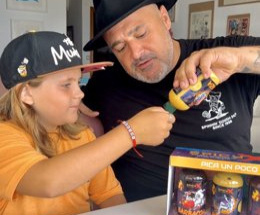All plastic packaging in Europe is to be recycled until 2030. This is part of a strategy of EU Commission to reduce plastic waste, promote recycling and better protect people, seas and environment. "We must prevent plastic from coming into our water, our food and even our bodies," said Vice-president Frans Timmermans in Strasbourg.
Why is plastic a problem?Worldwide, but also in Europe, enormous amounts of plastics are used and n thrown away. In EU alone, according to EU Commission, approximately 26 million tonnes of plastic waste are produced every year. Only about 30 percent of se are collected for recycling, remaining 70 percent land on dumps, in incinerators or in environment, especially in seas.
What's argument about straws?The straw is a symbol of unnecessary disposable consumption with drastic ecological consequences for anti-plastic activists worldwide. According to German Ministry of Environment, straws and bottle lids are among most frequently found marine waste, not only on Baltic Sea, alongside cigarette butts, food packaging and plastic bottles. "24 hours a day, around 700 kilograms of plastic in marine environment end every second," warns EU Commissioner Timmermans. "It takes five seconds to produce that five minutes to use it and about 500 years to dismantle it again." In total, up to 142 million tonnes of plastic are to be floated in world seas. Plastic particles are considered to be particularly risky, not only for marine life, but also for human food chains. They have now been detected in lungs and bloodstream.
What does Commission want to do about it?The Brussels strategy aims to recycle much more plastic and to make it less polluted. Until 2030, all plastics are to be recycled. The Commission has already given 250 million euros and promises up to 2020 more 100 million for research to develop substances. Waste reception facilities in ports should prevent waste from being dumped overboard. On land, Commission intends to bring forward a more pure collection of plastics across EU, which makes recycling easier and cheaper. The authority estimates that recycling costs will be reduced by around 100 euros per tonne. This will also make plans more attractive for plastics industry, which employs 1.5 million people throughout Europe and 2015 around 340 billion euros. The inflow of micro-plastic particles in cosmetics and detergents should be prevented.
Does strategy have a chance of success?"It must work," says Patrick Hasenkamp of Association of Municipal companies, which also stands for local refuse collection. "The amounts of plastic are simply far too big for us to be able to keep going." Although EU Commission, European Parliament and Member States have already agreed on a new waste directive, irrespective of new plastic strategy, which will increase recycling rates for packaging up to 2025 to 65 and to 2030 to 70 per cent. However, overarching strategy announced now is sensible, says Hasenkamp: "This creates a binding and incentives for mechanical recycling." He praised comprehensive approach with resource-confined materials and specifications for industry.
How much does it cost to consumers?Hasenkamp says that this is not a precise estimate for Germany. If same or even increasing amounts of plastic were to be used, many new recycling plants would have to be built. The cause cost. Today, average annual cost per household for waste collection and dual systems is 220 to 280 euros, it does not threaten a sudden increase, estimates Hasenkamp. In addition, EU Commission hopes to rethink consumers and move away from disposable plastic. The authority emphasises that current consumption of resources is also enormously expensive. Environmental, health and climate damage does not arise as a cost, but must ultimately be paid for by citizens.
What about plastic tax?EU Budget Commissioner Günr Oettinger wants to have a possible tax audited and hopes for double benefits: less waste and billions of revenue for EU budget. However, his colleague, Timmermans, has to bear in mind: "As with (levies on) plastic bags, intention is that people no longer use this. So in a perfect world, revenue would drop very quickly. " By way, EU Directive against one plastiktüten has actually brought something. Since bags are no longer free of charge, consumption decreases. According to trade association HDE in Germany, 2016 were used a third less than a year earlier. However, re were still 3.7 billion pieces.
Date Of Update: 17 January 2018, 12:03












